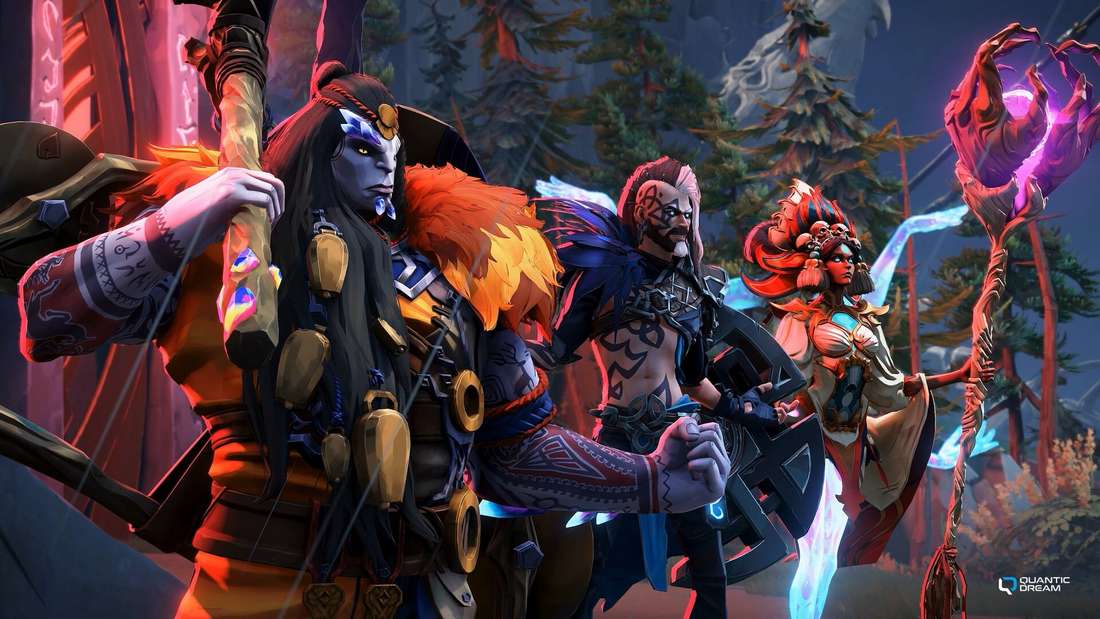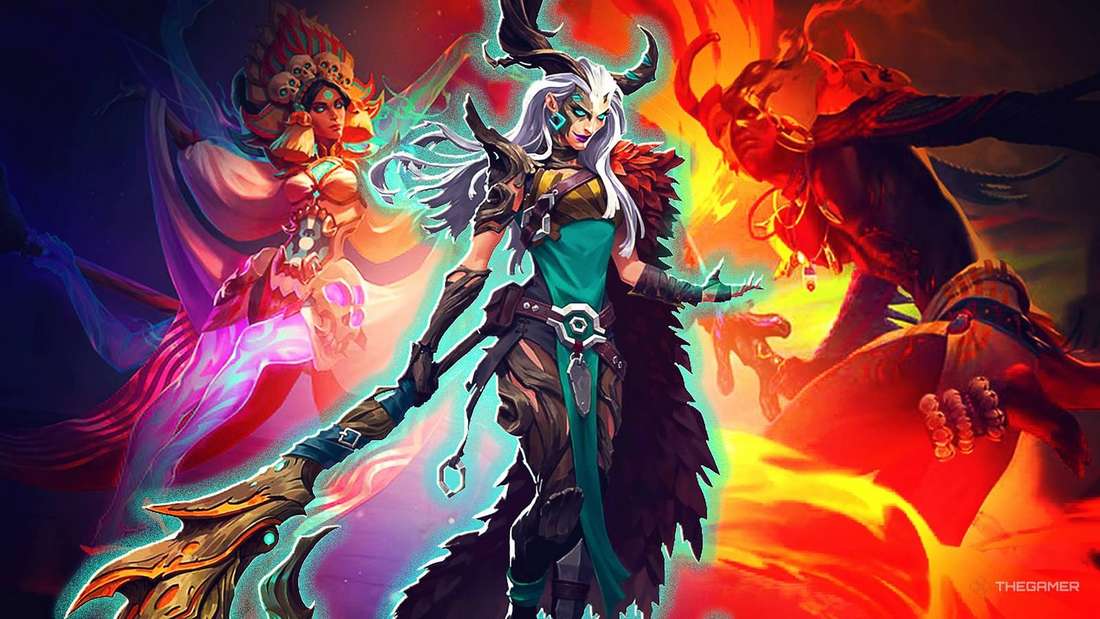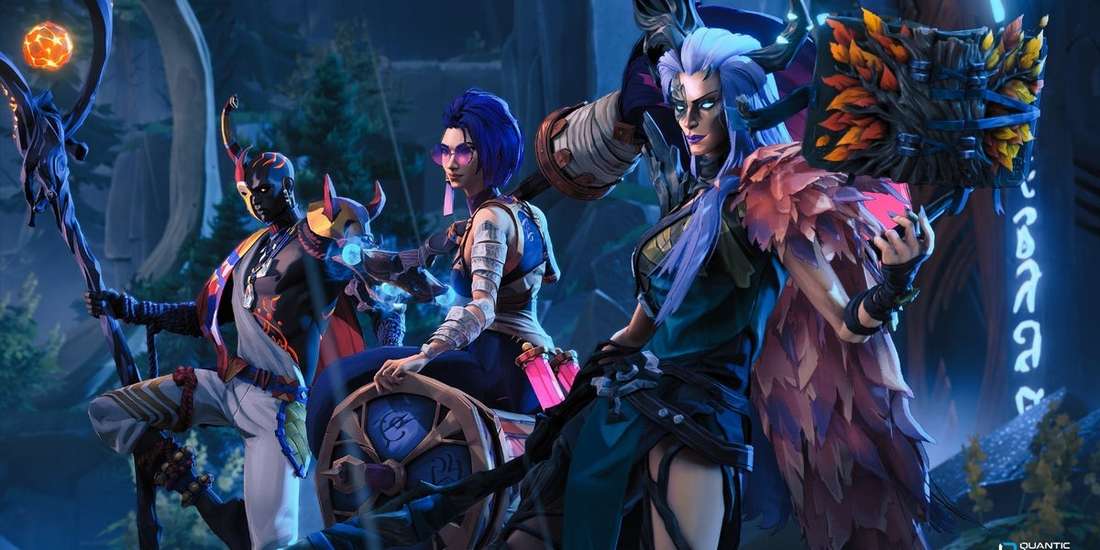Quantic Dream’s Genre Pivot: Why the Narrative Masters Are Betting Big on the MOBA Market with ‘Spellcasters Chronicles’
Popular Now
 Fall Guys
Fall Guys
 Candy Crush Saga
Candy Crush Saga
 BeamNG.drive
BeamNG.drive
 Black Myth: Wukong
Black Myth: Wukong
 EMI Calculator App & Loan EMI
EMI Calculator App & Loan EMI
 Roblox
Roblox
 Valorant
Valorant
 The Legend of Zelda
The Legend of Zelda
 Stumble Guys
Stumble Guys
 Warframe
Warframe
 The gaming world is still processing the seismic news: Quantic Dream, the studio synonymous with deeply narrative, single-player experiences like Heavy Rain and Detroit: Become Human, has officially announced its first competitive multiplayer game, a MOBA titled ‘Spellcasters Chronicles’. The title you referenced, ‘Deadlock,’ is, in fact, the name of a new MOBA from Valve, which highlights the aggressive saturation and high-stakes nature of this particular market. Quantic Dream’s bold venture, developed over seven years internally, is a radical departure for a studio whose founder, David Cage, built a legacy on interactive storytelling and cinematic drama. This move is a strategic attempt to diversify their portfolio under the ownership of Chinese technology giant NetEase, tapping into the lucrative, high-value Competitive Multiplayer sector.
The gaming world is still processing the seismic news: Quantic Dream, the studio synonymous with deeply narrative, single-player experiences like Heavy Rain and Detroit: Become Human, has officially announced its first competitive multiplayer game, a MOBA titled ‘Spellcasters Chronicles’. The title you referenced, ‘Deadlock,’ is, in fact, the name of a new MOBA from Valve, which highlights the aggressive saturation and high-stakes nature of this particular market. Quantic Dream’s bold venture, developed over seven years internally, is a radical departure for a studio whose founder, David Cage, built a legacy on interactive storytelling and cinematic drama. This move is a strategic attempt to diversify their portfolio under the ownership of Chinese technology giant NetEase, tapping into the lucrative, high-value Competitive Multiplayer sector.
 A Sudden Shift: From Emotional Drama to Spell-Slinging PvP
A Sudden Shift: From Emotional Drama to Spell-Slinging PvP
For nearly three decades, Quantic Dream’s business model was defined by its “single-project studio” focus, pouring vast resources into titles where player choices drive complex, branching narratives. Spellcasters Chronicles shatters this mold. Described as a free-to-play, third-person 3v3 action-strategy game, the project thrusts players into fast-paced 25-minute matches set in a vibrant fantasy world. This shift is not merely a change in genre; it’s a complete pivot in design philosophy, targeting the live-service games market which offers sustained revenue growth and long-term player engagement—key metrics favored by modern publishers.
- Core Gameplay Loop: Teams of three Spellcasters (archetype-driven mages) must capture summoning towers to gain territory and, ultimately, destroy the opposing team’s Lifestone to win. The action is third-person, providing a more immediate, visceral feel than traditional top-down MOBAs like League of Legends or Dota 2.
- Deck-Building Strategy: A unique element is the deck-building system, where players customize their loadouts before each match, choosing from a pool of unlocked spells, summonable grunts, and structures. This adds a crucial layer of tactical depth and replayability, appealing to players who enjoy crafting optimized competitive builds.
- High-Value Keywords: The game hits high CPC keywords—MOBA, Free-to-Play, Competitive Gaming, and eSports Potential—positioning it directly in a segment that attracts significant digital advertising spend.
 The Commercial Imperative: NetEase Influence and Market Expansion
The Commercial Imperative: NetEase Influence and Market Expansion
The transition from a boutique, narrative-focused studio to a multi-project developer focusing on a MOBA can be directly linked to Quantic Dream’s 2022 acquisition by NetEase. NetEase, a titan in the Asian mobile and online gaming space, has a vested interest in securing stable, scalable live-service titles with global reach. While studio head David Cage framed the move as a return to Quantic Dream’s “creative spirit” and a desire to “explore new ways of playing and telling stories,” the commercial reality of the MOBA genre is undeniable.
The MOBA market, though dominated by a few giants, generates billions in in-game purchases and microtransactions. Spellcasters Chronicles is clearly engineered to leverage this high-profit model, providing an alternate development track to the studio’s ambitious, yet notoriously long-in-development, single-player title, Star Wars: Eclipse. By operating multiple teams, Quantic Dream mitigates the risk associated with a single major release and establishes a constant presence in the marketplace.
The move is a clear investment in market diversification and long-term player monetization—a key strategy for any studio looking to succeed in the modern, post-acquisition gaming landscape. It signals that Quantic Dream is serious about evolving into a major global player, not just an acclaimed storyteller.
Gameplay and Narrative Intrigue: A Community-Driven World
Despite the competitive focus, Quantic Dream claims the game will retain a community-driven narrative element. While details remain vague, the promise is that the player base’s collective actions and decisions will somehow influence the game’s lore and story progression across seasons. This is perhaps the most interesting overlap between their past and future work—an attempt to inject the studio’s DNA into a genre that often prioritizes pure mechanics over deep plot. Early closed beta testing on Steam will focus on the core combat loop, with the macro-loop and narrative elements to be introduced later.
Initial impressions from the limited gameplay reveal a high degree of verticality in the arenas, encouraging players to fly, summon gargantuan Titans, and rain down impressive, screen-filling effects. This emphasis on dynamic movement and spectacular combat aims to carve out a niche against the established top-down competition. The challenge for Quantic Dream will be to balance this visual spectacle with the deep strategic demands required for a MOBA to maintain a sustainable competitive player base in a genre famous for its punishing skill ceiling.
The Conclusion: A High-Risk, High-Reward Gamble
Quantic Dream’s pivot to the MOBA genre is perhaps the most surprising news of the year. It represents a practical and commercial necessity driven by a desire for expansion and the backing of NetEase. While the name Deadlock belongs to Valve’s own third-person MOBA/Hero Shooter hybrid, the comparison to their direct competitor only underscores the enormous challenge facing Quantic Dream’s Spellcasters Chronicles. They are entering an incredibly saturated, high-barrier-to-entry market with no prior experience in the genre.
However, the unique blend of a third-person perspective, deck-building mechanics, and the promise of a collective, evolving narrative offers a compelling new formula. If Quantic Dream can successfully translate their reputation for visual fidelity and intriguing character design into a balanced, engaging competitive experience, Spellcasters Chronicles could become the breakout hit that solidifies their new identity as a multi-genre global studio. This is a crucial test, not just of their development chops, but of their ability to adapt and thrive in a volatile, high-growth video game market.








